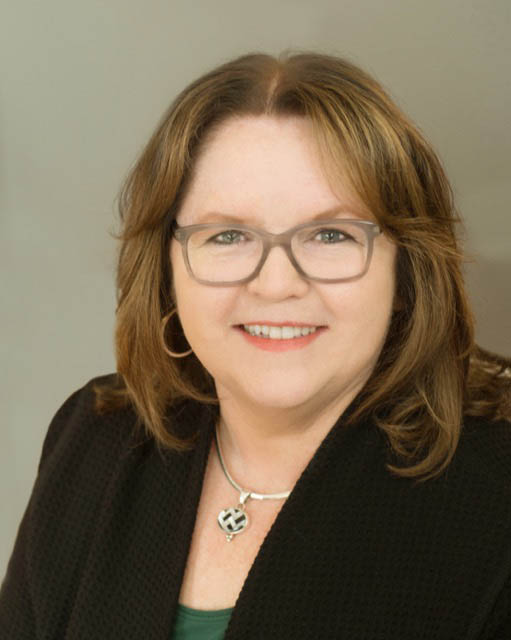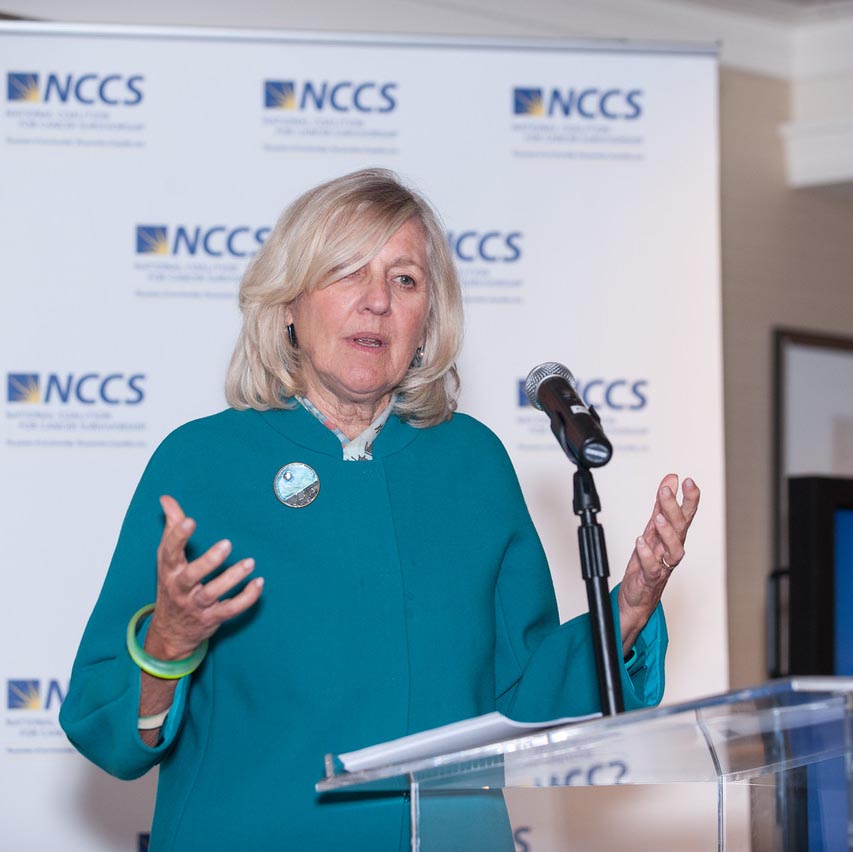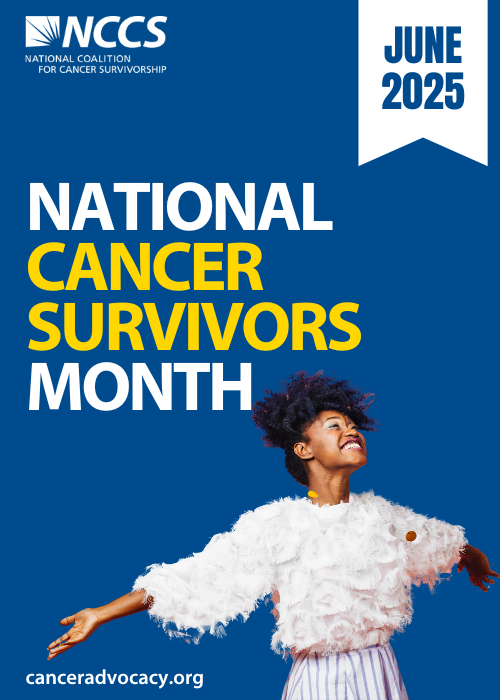Guest Post by Elizabeth J. Clark: Self-Advocacy is Critical to Quality Cancer Care
| This post is part of our 20 Years Later blog series which examines progress in advancing the principles in the 1995 NCCS publication Imperatives for Quality Cancer Care: Access, Advocacy, Action, and Accountability (Imperatives). The tenth principle states that “The provision of psychosocial services must be safeguarded and promoted. Persons diagnosed with cancer should receive psychosocial assessments at critical junctures along the continuum of care to determine availability of needed support and their ability to seek information and to advocate on their own behalf.” |

Post by Elizabeth J. Clark, PhD, ACSW, MPH
In the past twenty years, many advances have been made in ensuring quality cancer care for persons living with cancer. Individuals now have better treatments, more options, more cures, and longer periods when they are cancer-free or in remission. Enhanced insurance coverage, especially the passage of the Affordable Care Act, has contributed to innovative programming in survivorship and supportive care.
So what is still missing and what is left to do? Disparities and remnants of the dual delivery system in cancer care remain. Patients with resources can get second and third opinions, can travel to major cancer centers for the most advanced therapies, can afford exorbitant co-pays, and can secure the help and services needed. Those with limited means do not have as many options. Additionally, as cancer treatments have become more complex, health literacy has taken on heightened prominence. This further contributes to disparities in care.
All of these factors point toward an increased need for self-advocacy and advocacy on behalf of loved ones with cancer. Cancer survivors have long contended that it is through self-advocacy and personal empowerment that other identified needs (for information, intervention, and support) are met. Yet just as a digital divide exists between generations and educational levels, there also exists a divide between persons who are expert, or at least adequate, at self-advocacy, and those who are unable to direct or to be a full partner in their own care.
As health care professionals, we must support and include self-advocacy training as part of patient-centered care. This will help cancer survivors acquire the advocacy skills they need to find relevant information, to make better decisions, to communicate well with care providers, and to negotiate with employers and insurers across the care continuum. In short, we need to make certain that survivors can stand up for their rights so that they can live as fully and as well as possible after a cancer diagnosis.
For those cancer survivors who are unable to be self-advocates, we need to provide added assistance from patient navigators, oncology social workers, case managers, and care coordinators—the members of the care team most adept at providing psychosocial and supportive services and removing barriers to optimal quality of life. While we have seen progress in areas like distress screening, patient-centered care, and palliation of symptoms, they have not yet become a routine and required part of cancer care in all settings.
Looking back over the 20-year period since the Imperatives for Quality Cancer Care was published, it is apparent that progress in psychosocial and supportive care has been made. This progress needs to be safeguarded and promoted, but more is needed. We remain hopeful that initiatives like multidisciplinary teams, medical homes, and standards for patient-centered care will finally result in optimal and comprehensive care that every cancer survivor deserves.
About the Author: Elizabeth (Betsy) Clark is the President of the Start Smart Career Center. She is the former CEO of the National Association of Social Workers. Betsy is a past-president of NCCS and an author of the Cancer Survival Toolbox series on self-advocacy. She currently is Vice-Chair of the Leukemia and Lymphoma Society and serves on the Executive Committees of C-Change and the National Hospice and Palliative Care Organization.
The views and opinions expressed in any guest post featured on our site are those of the guest author and do not necessarily reflect the opinions and views of the National Coalition for Cancer Survivorship. Read our blog and comment policies here.




